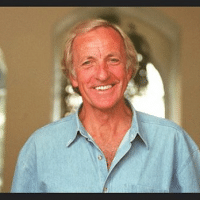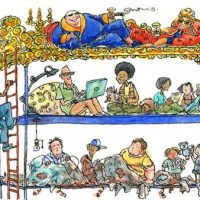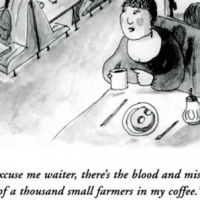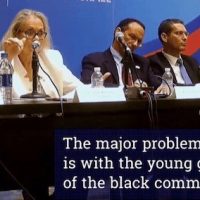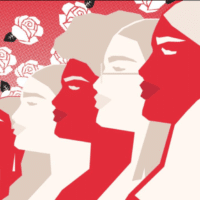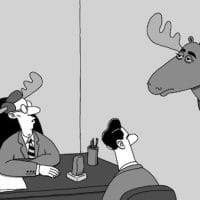-
Sorry, not sorry
Sorry to Bother You threw down the gauntlet. We can no longer afford to stick to the script.
-
Guest Media Alert
The death of Robert Parry earlier this year felt like a farewell to the age of the reporter. Parry was “a trailblazer for independent journalism”, wrote Seymour Hersh, with whom he shared much in common.
-
Washington walkouts win teachers big raises
Fifteen districts started the school year on strike in Washington state—the latest to ride the West Virginia wave.
-
The new class-blindness
Legal advocates have scored some major class-related victories in 2018. In January, an appellate court held that the administration of California’s money bail system violated the Fourteenth Amendment rights of indigent defendants.
-
What happens when the ‘alt-right’ starts believing in climate change?
What does it mean for whites if climate change is real?
-
Labor and human social metabolism (part 1)
Our global ecological crisis has created an increasing interest in Marx’s theory of metabolic rift as a crucial aspect of capitalism (Foster 2013). To appreciate fully how capitalism creates this rift, it is important to examine the human metabolic relation with nature in general and theoretical terms.
-
Dossier 8: The uprooting in Haiti
In 1980, the magazine Tricontinental, published by the Organization of Solidarity with the People of Asia, Africa and Latin America (OSPAAAL), dedicated its issue no. 119 to Haiti. The editors wrote, ‘Very little is known about the Haitian people’s struggle,’ as the imperialists have ‘erected a wall of silence around Haiti.’
-
Censored documentary exposes Israel’s attack on Black Lives Matter
Israeli operatives and their U.S. lobbyists sprang into action when the Movement for Black Lives came out in support of the boycott Israel movement.
-
Maduro’s Beijing visit spooks a U.S. plotting Venezuela’s isolation
Given the humble goal of Caracas to free itself from the domineering whims of a U.S. imperialism keen on reviving the notorious Monroe Doctrine, it is obvious why the U.S. would see sinister motives in the fraternal reception Beijing has offered to the Venezuelan head of state.
-
5 reasons not to vaccinate your child
Ignorance is not a crime. And neither is non-vaccination, for now.
-
Venezuela poses no ‘threat to the world’—but WaPo’s claim that it does is dangerous
The phrase “a threat to the world” has a hyperlink to an earlier Tharoor piece (3/1/18), which includes the claim, “As many as 4 million Venezuelans—more than 10 percent of the population—have already left the country, according to the Brookings Institution,”
-
Sadly, there is no strike wave
In a September 8 post to the Jacobin website, Eric Dirnbach announced that “U.S. workers are striking again.”
-
Marronage meets Bolivarian Socialism: Maroon Comix, a Review
VA’s Jeanette Charles reviews Maroon Comix, a book that tells the tales of maroons’ fight for freedom and self-determination and their legacy for today’s struggles.
-
By inviting and disinviting Bannon, New Yorker fell into its own trap
Corporate media just can’t stop cluelessly digging their own grave.
-
Gender, Labor, & Law with Emma Caterine
In this episode, we speak with Emma Caterine (@emmacaterineDSA), a law graduate and writer with more than a decade of experience working within economic justice, feminist, LGBTQ, and racial justice movements. We talk Democratic Socialists of America, MMT, the advantages of a federal jobs guarantee over a universal basic income, the place for sex work in a jobs guarantee program.
-
Nicaragua: ‘Scientific American should try sticking to science’
The last thing we need is to introduce all of the world’s political conflicts into climate change policy, writes Dr. Paul Oquist, Nicaragua’s chief climate negotiator.
-
Elections in Brazil–guess who turns up?
Just when you think that they have already done enough damage, that they have seen the light, and maybe they have repented and disappeared to enjoy the wealth they have amassed thanks to an insane capitalist system, they surface again like a cancer that no surgery or radiation has been able to remove.
-
The mind of the mass media
You write Trump “made no mention of Russia’s adventures in Ukraine”. Well, neither he nor Putin nor you made any mention of America’s adventures in the Ukraine, which resulted in the overthrow of the Ukrainian government in 2014, which led to the justified Russian adventure. Therefore…?
-
18 theses on Marxism and animal liberation
Marxist critique of society remains incomplete if it does not consider the fact that, to make profits, the ruling classes have not only exploited the oppressed classes within the history of class struggle, but also and always animals (and nature).
-
Boots Riley’s critique of Spike Lee’s “BlacKkKlansman”
Sorry to Bother You director and musician Boots Riley on Spike Lee’s, BlacKkKlansman: “It’s a made up story in which the false parts of it to try to make a cop the protagonist in the fight against racist oppression. It’s being put out while Black Lives Matter is a discussion—and that is not coincidental. There is a viewpoint behind it.”


